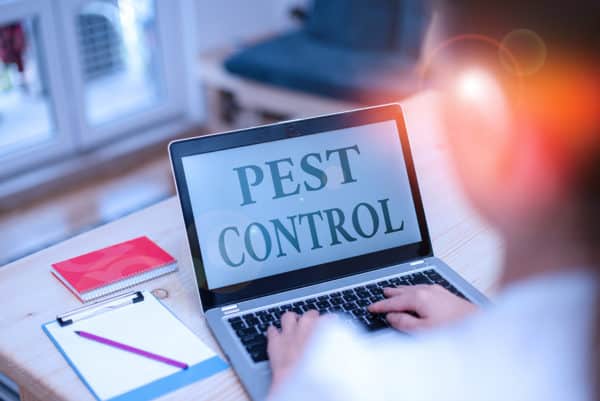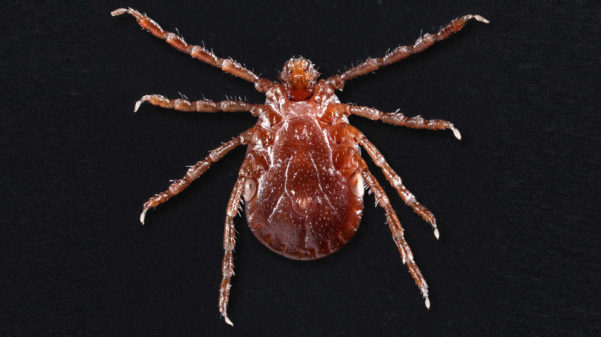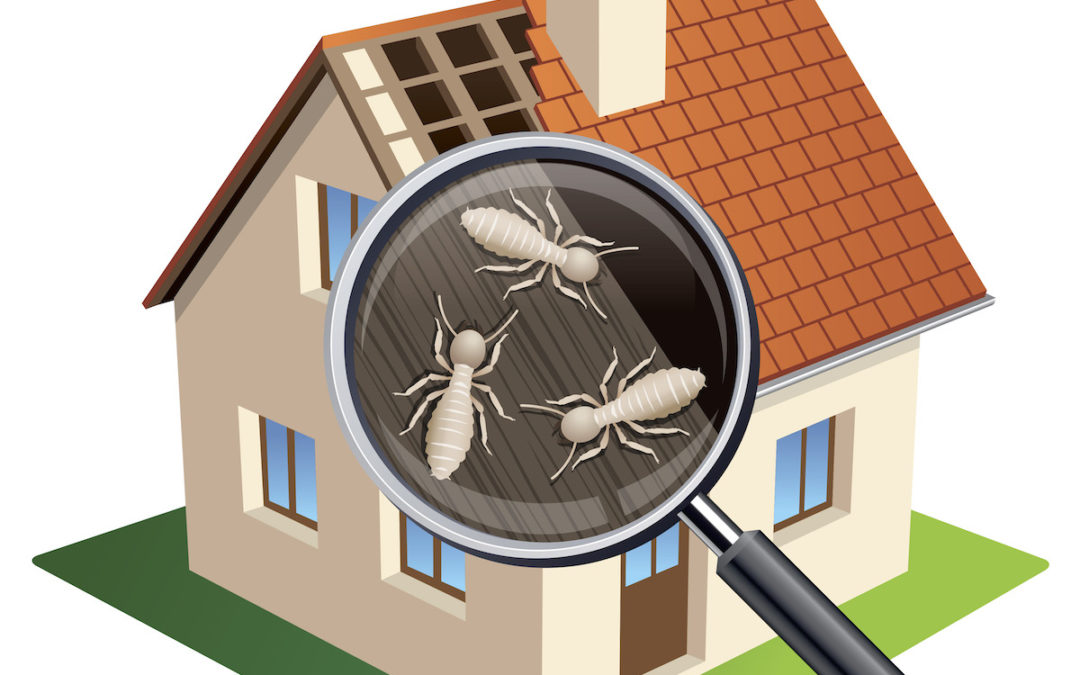READY TO GET STARTED?
REQUEST A FREE ESTIMATE
Fill out the form below or call (888) 466-7849 for a free, no-obligation estimate.

Business owners have a laundry list of priorities when it comes to running their companies effectively – competitive pricing, keeping both customers and employees happy, maintaining their bottom line while generating profit. One of the most important aspects of running a business is making sure the customers, employees, and the building itself are safe and healthy. For this reason, commercial pest control should be included on the top priorities list. Pests are not only a serious health hazard to both employees and customers, they can also cause significant structural damage to buildings and property. Their presence alone is enough to taint the reputation of a business, often causing irreparable damage and loss of business.
Commercial pest control offers many benefits to business owners:
Pests are active year-round. Whether it’s termites swarming in the spring or spiders in the fall, customers don’t want to see pests in your business during any season. Partnering with a commercial pest control company offers the benefit of year-round pest protection regardless of the type of seasonal pest you have.
Different pests can plague a business at different times throughout the year. Commercial pest problems can range from roaches in the kitchen of a restaurant to bed bugs in the guest room of a hotel and any variety of problems in between. A professional pest control company can provide service for any type of pest you encounter, providing the latest and most innovative techniques and treatment options for a variety of pests.
Most pest control companies offer a service guarantee meaning if you encounter a pest problem between scheduled visits or if you continue to have a recurrent problem after they have treated, they will come back and retreat at no additional cost to you.
A commercial pest control company can thoroughly evaluate your company to assess any pest issues you may have, as well as any areas of concern that may lead to future pest problems and provide you with a customized program tailored specifically to your company’s needs.
Commercial pest control provides many benefits to business owners and services including schools and daycares, hospitals, restaurants, offices, apartments, and more. Pest problems can be detrimental not only to a company’s reputation but also to the health and safety of their employees and customers and even the structure of the property itself. Consider implementing a commercial pest control program for your business today.
Is Sentricon Termite Protection Right for Your Home?
Things That Go Bump in Your Crawlspace

As a business owner or manager with a commercial property, you’ll most likely be faced with a pest issue during the duration of operating your business. And while pest control service may be optional for homeowners, it’s often a necessity or requirement for businesses, especially those where food preparation, distribution, or storage is involved, or any facility that offers a storefront or location for customers to visit. The appearance and condition of your commercial property is often your customer’s first impression of the business, so it’s critical that pests are not an issue or seen by existing and potential customers, or even employees!
Because of the health risks and threats pests can present, it’s essential to take a proactive approach to commercial pest control. This includes regular pest inspections by an exterminating company that specializes in pest control for businesses and routine, often monthly or quarterly, pest control treatments. So what are your options when it comes to commercial pest control and what can you expect from the initial call to an exterminator to service and follow ups? Here’s what you need to know:
The first step in any pest control plan, commercial or residential, is to identify past, current or potential pest threats. Businesses commonly experience issues with roaches, rodents, termites and mosquitoes – but may also experience wildlife invasions (squirrels, raccoons, birds, bees, snakes, and more) and other minor pests issues.
Because of the sanitation conditions associated with roaches, rodents and wildlife, treatment and prevention is key. Your exterminator will inspect the entire property to identify entry points and areas of infestation, and provide prevention recommendations for clean-up and a pest control plan for monthly or quarterly treatments, depending on the severity of the pest issue.
Mosquitoes also pose health risks by spreading diseases like zika, West Nile, Encephalitis, and dog heart worm and causing mosquito bite allergies. If your business serves customers outdoors, you should have your property inspected for current and potential mosquito resting and breeding sites, eliminate or reduce these areas, and request monthly mosquito treatments during peak mosquito season, usually April through October. Mosquito control service is the best way to prevent mosquito bites and minimize risk of mosquito-borne diseases.
Wildlife invasions are also common and can present damage and sanitation issues for business owners. If you suspect a wildlife issue, contact a wildlife control company immediately to inspect the property, identify wildlife issue, and offer solutions for wildlife exclusion and prevention.
Once you have your property inspected, pest issues identified, and you have treatment and prevention options, review proposals and determine the best fit for your business. If you’re looking for eco-friendly options that are effective yet utilize non-toxic products and careful application, consider an exterminating company that specializes in green pest control.
Other factors to consider when choosing an exterminator for your business:
Have more questions about commercial pest control? Call us now or request a free estimate to get started.

For the first time in fifty years, the U.S. has its first known invasive tick.
The longhorned tick, first discovered in November 2017, has been found in New York, Pennsylvania, Maryland, Virginia, West Virginia, North Carolina, and Arkansas. Professionals have had unsuccessful attempts to exterminate this particular species, leading it to be classified as an invasive species.
Normally an animal-attracted pest, the longhorned tick has been known to carry and transmit diseases like Lyme, spotted fever, and Severe Fever with Thrombocytopenia (SFTS). SFTS symptoms include fever, vomiting, multiple organ failure, along with many other symptoms. Fortunately, of the ticks tested here in the U.S., no human diseases have been detected.
As always, use the normal precautions towards tick exposure:
Continuing to follow these precautions will help to prevent tick exposure for you and your family members.
How Much Does a Termite Inspection Cost?
Pest Control for Basements and Attics
Wildlife Control: What Threat do Rodents Pose to Humans?
Exterminating: Rain and the Bugs it Brings?
Termite Treatment: Termites vs Flying Ants

The 2 most common reasons to need a termite inspection: when required during real estate transactions and if termite activity is present or suspected by homeowners and business owners.
If either of these situations applies, you may be wondering how much a termite inspection costs, and what steps are taken if an infestation is found by a termite exterminator.
If you own a home or business and see signs of active termites (usually swarming termites) or termite damage, you’re going to need a termite inspection from a local exterminator near you. Or if you’re considering selling your home in the near future and don’t have a termite warranty, now may be a good time for a termite inspection, so you don’t delay the sales process when you find a potential buyer.
If the intent is to get termite treatment options and find out if you have an active termite infestation, most termite exterminators will perform a free termite inspection. The first step in this process is to contact a reputable pest control company and schedule a termite inspection. On the day of inspection, be prepared for the inspector to spend a half hour to an hour or longer at your property, depending on the size and condition of the home or business. The inspector will be looking for active and previous signs of termites, termite damage, and any other wood destroying insects or pest issues.
If termite activity is found, previous or active, termite treatment options will be provided. Common forms of treatments include liquid barrier treatments and termite baiting systems, which are a less invasive, environmentally responsible option. Most exterminating companies will also offer termite warranties with treatment so that your property is protected from future termite infestations and/or damage.
If no termite activity is found, it’s still a smart choice to consider having your home or business treated for termites. A baiting system like Sentricon Always Active® is a great preventative treatment choice. Termites cause billions of dollars in structural damage each year so taking a proactive approach to termite protection is the only way to totally protect your investment from termites.
Termite inspections and Wood Infestation Reports are usually required during the purchase of a home. These are NOT included in a general home inspection. Often, the real estate agent representing the seller will coordinate the termite inspection with their exterminating company of choice, if the homeowners do not currently have an active termite warranty. The fee for this inspection and report generally ranges from $45 to over $100 depending on the termite company. This fee is sometimes waived if active or previous termite activity is found and the property will require a termite treatment.
Termite Treatment Options: How Sentricon Works
Termite Control: Do I Really Need Termite Protection
What Are Your Termite Treatment Options?
Green Pest Control: Is it Worth the Investment?
What to Look for When Choosing an Exterminator

With the start of a new year, you may have begun to purge your home of unnecessary items or mapped out a major cleanup day. While the most lived in rooms are probably on your radar – the kitchen, bathroom, living room, and bedrooms – areas like your basement and attic can become catch all-areas or forgotten altogether. These neglected spaces are then susceptible to pest invasions and other home issues.
These tips are only part of your healthy home journey. Schedule a pest inspection with a licensed exterminator, who can identify current pest issues, potential pest threats in the future, and provide a personalized pest control plan for ongoing prevention.
Pest Control: Where Do Pests Go In The Winter?
Wildlife Control: Sneaky Wildlife – Possums and Raccoons
Lawn Care: 10 Ways To Care For Your Lawn In Extreme Heat
Termite Control: 10 Things You Didn’t Know About Termites
Is Green Pest Control Worth The Investment?